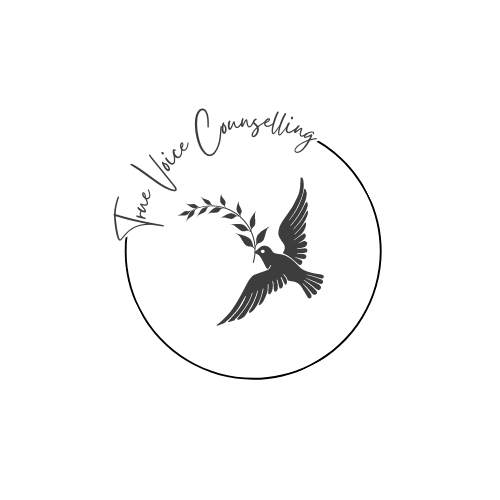We’ll See: Settling Into the Mystery in Living
Entering therapy often awakens a longing for answers. We wonder how long it will take, what hidden wounds lie beneath the surface, and how we can finally resolve them. We seek reassurance that our goals are achievable — that happiness, healing, and certainty are within reach.
It’s only natural to feel unsettled when we leave a session with more questions than answers. We may even blame ourselves for not “getting it” fast enough, or wonder if we’re doing therapy “right.” But uncertainty is part of every genuine healing process. Psychologists like Carl Rogers (1961) remind us that real change often comes from sitting with the unknown — embracing openness rather than grasping for immediate resolution.
We are wired to crave certainty. The brain’s threat system is activated by ambiguity, often triggering anxiety as it scrambles to predict or control outcomes (Porges, 2011). This is why unexpected change — whether welcome or not — can leave us feeling disoriented. The ground shifts beneath our feet, and suddenly, we’re questioning who we are and what comes next. It’s human nature to try to label experiences quickly: Is this good? Bad? My fault? Their fault? Yet when we rush to assign meaning, we can miss the deeper possibilities unfolding before us.
There’s a Zen story I often return to when I’m wrestling with uncertainty — “We’ll See.”
Once upon a time, on a fine fall morning, an old farmer went out to tend his animals and crops.
At first light, the farmer was dismayed to see his fence had been crushed by a falling tree during the night. All three of the farmer's prized horses had disappeared.
The other villagers moaned in sympathy: "Whatever will you do?" they asked the farmer. "This is terrible," they all cried, shaking their heads sadly, "and right before harvest time, too."
"Your harvest will rot in the field. What will your family eat this winter? How will you get your crop in without horses?" one of the villagers asked the old farmer.
"We'll see," was the farmer's only reply as he returned to his chores.
Later that morning, the farmer heard the sound of hooves and, looking up, saw his three horses had returned! What was more, the three horses had two wild horses running with them.
Soon, the villagers were heard to express their delight at the farmer's good fortune.
"What a wonderful thing to have happen!" the other villagers cried. "What a wealthy man you will be with this new stock of animals!"
"We'll see," was all the old farmer would reply.
After lunch that day, the farmer's son was trying to break one of the wild horses to the saddle. Suddenly, the wild horse threw the son to the ground. Running to his injured son, the farmer found his son's leg badly broken.
The neighbors were soon around to give their opinions.
"What a terrible calamity," the villagers said. "What a disaster."
"Now you really won't be able to get your crop in without a strong son to help you. He will take months to heal. Whatever will you do now?" the other villagers asked the farmer in despair.
The farmer would only shrug and say: "We'll see."
Later that afternoon, military officials rode into the tiny village, with a great clattering of weapons and jostling of horses. Looking grim and serious, the soldiers announced an official conscription. Every young and able man was to be drafted into service that very day.
The farmer's son, having just been injured, was left behind, even as other sons and husbands were taken.
No one in the village could believe the old farmer's good fortune. And not everyone was entirely happy about it.
"Surely the most tremendous good fortune has smiled upon you today," the villagers grumbled. "How can anyone be so lucky?"
But the old farmer would only reply, "We'll see."
The End
I love this story because it holds up a mirror to our human tendency to judge life events too quickly. In narrative therapy (White & Epston, 1990), we talk about the power of dominant stories — the versions of reality we cling to in order to make sense of our world. Yet, as this story shows, initial interpretations often fall short of the complexity and unfolding nature of life.
This tale also echoes principles of Acceptance and Commitment Therapy (Hayes et al., 1999), which invites us to hold our experiences with openness and curiosity rather than rigid evaluation. By loosening our grip on labels, we make space for flexibility, resilience, and deeper engagement with life as it is — not just as we wish it to be.
Of course, this isn’t always easy. Learning to stay with uncertainty can feel like standing in a storm without a map. But in doing so, we begin to cultivate what psychologists call distress tolerance — the ability to remain present amid discomfort without reacting impulsively (Linehan, 1993). Over time, this builds emotional resilience and frees us from the exhausting cycle of overthinking and self-criticism.
So, what if we tried to live with a little more of the farmer’s “We’ll see”?
What if we welcomed life’s unfolding with curiosity instead of judgment?
What might we release — or discover — if we allowed ourselves to sit with not knowing?
Perhaps uncertainty is not a problem to be solved, but a mystery to be met.
And maybe, in that meeting, we’ll find that life — like therapy — is less about fixing, and more about allowing ourselves to be fully present with what is.
References:
Hayes, S. C., Strosahl, K. D., & Wilson, K. G. (1999). Acceptance and Commitment Therapy.
Linehan, M. M. (1993). Cognitive-Behavioral Treatment of Borderline Personality Disorder.
Porges, S. W. (2011). The Polyvagal Theory: Neurophysiological Foundations of Emotions, Attachment, Communication, and Self-Regulation.
Rogers, C. R. (1961). On Becoming a Person: A Therapist's View of Psychotherapy.
White, M., & Epston, D. (1990). Narrative Means to Therapeutic Ends.
